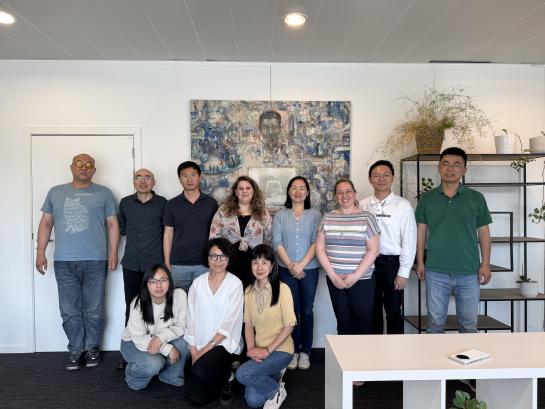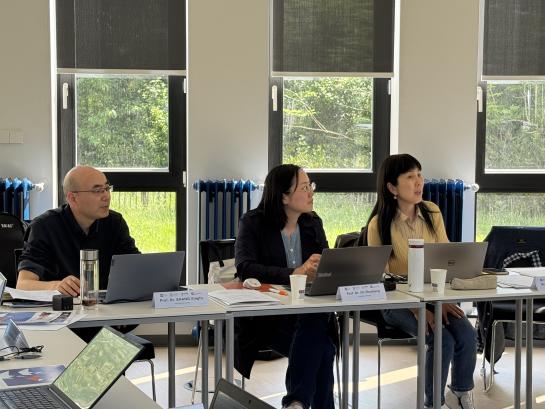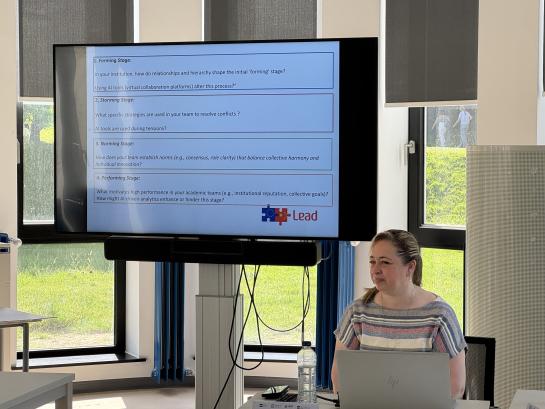
The second and third days of the Young Academic and Digital Academic Leadership Development Program at Vrije Universiteit Brussel (VUB) fostered deeper discussions on AI-driven academic leadership, team management, and entrepreneurial ecosystems, reinforcing the partnership between VUB and Shanghai University.
On 13 May, Laura Pizzirani from the EU-China Higher Education Research Center presented the four stages of team management and led interactive group discussions on integrating AI into academic team workflows. Participants emphasized AI’s potential for objective performance assessments while stressing the irreplaceable role of senior leadership in establishing clear goals and ethical standards. After this discussion, Prof. Marc Theeboom shared insights on transforming individual academic collaborations with Chinese institutions into sustainable institutional partnerships, underlining the importance of trust-building and cultural sensitivity.
The afternoon sessions shifted to academia’s role in fostering innovation. Prof. Kevin De Moortel from Brussels Entrepreneurship and Innovation Lab of VUB advocated for future-oriented entrepreneurship education that bridges theory and practice, positioning universities as catalysts for regional development. He underscored the urgency of adaptive technology transfer models to accelerate research valorization. Lotte Vermeire from IMEC-SMIT of VUB presented her research findings redefining data literacy as a multidimensional competency integrating technical, ethical, and societal engagement with data. The day concluded with Prof. Chang Zhu outlining VUB’s AI regulatory frameworks, encouraging participants to share comparative perspectives on balancing AI integration with academic integrity in their home institutions.
14 May commenced with a guided tour of the VUB AI Experience Centre, led by Hans De Canck, Director of AI Experience Center of VUB and Co-Director of FARI – AI for the Common Good Institute. Participants explored emerging AI applications, including sensor-enabled prosthetics and AI-driven mechanical arm, while learning how FARI identifies societal needs to design pilot projects and enhance AI literacy. The group also engaged in hands-on demonstrations of AI tools currently under development.
The program then addressed leadership with Frederic de Pryck, President of Columbus. Through case studies of successful and failed ventures, he dissected essential leadership attributes for the digital age and gave advice on how to develop these leadership skills.
Over both days, cross-disciplinary discussions revealed shared challenges and opportunities. Shanghai University professors exchanged experiences and strategies with VUB experts on topics ranging from AI ethics in classrooms to institutional frameworks for international collaboration. These interactions underscored the program’s broader mission: to cultivate leaders capable of harmonizing technological innovation with academic values in an interconnected world.


